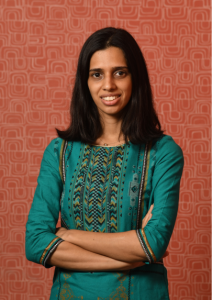My excitement knew no bounds when I heard the names of this year’s Nobel Prize winners in Economics. The Royal Swedish Academy of Sciences has awarded the 2019 Sveriges Riksbank Prize in Economic Sciences to Abhijit Banerjee, Esther Duflo and Michael Kremer “for their experimental approach to alleviating global poverty”.
As the news sunk in, it began to dawn upon me that the work done by Banerjee, Duflo and Kremer has influenced and empowered a whole generation of researchers in thinking and caring deeply about global poverty and finding multi-dimensional pathways to alleviating it.
A few years ago, I was working as a field Research Associate collecting primary data for a randomized controlled trial (RCT) that aimed to evaluate the impact of access to financial services through self-help group programs (popularly known as SHGs) in rural Tamil Nadu. At that time, as a young researcher, straight out of college, it was hard to fully understand the potential of such research, in guiding policy on access to finance. However, identifying strategies that help the least well-off through different aspects of their life- health, education, financial inclusion, livelihood- can bring us one step closer to solving global poverty. Banerjee, Duflo and Kremer, through their multi-sectoral research have shown that knowing the right quantitative answers to specific questions by establishing causal inferences is important in designing evidence-based policy.
Closer home, using the RCT model, Rohini Pande and Erica Field, are conducting an independent impact evaluation of the KGFS model since 2010. This research has helped us significantly in gaining a deeper understanding of the model and its impact in the context of access to formal financial services.
Esther Duflo is the second women and the youngest person to be awarded the Prize in Economic Sciences, which for many researchers, especially women, is very inspiring.
Young researchers like me have been a ‘tiny’ part of this community and have been greatly influenced by these pioneering researchers and their colleagues who have transformed the field of development economics. To witness the acknowledgement that this field has received through this recognition and to be associated with the work of some of the greatest minds, feels deeply satisfying.


